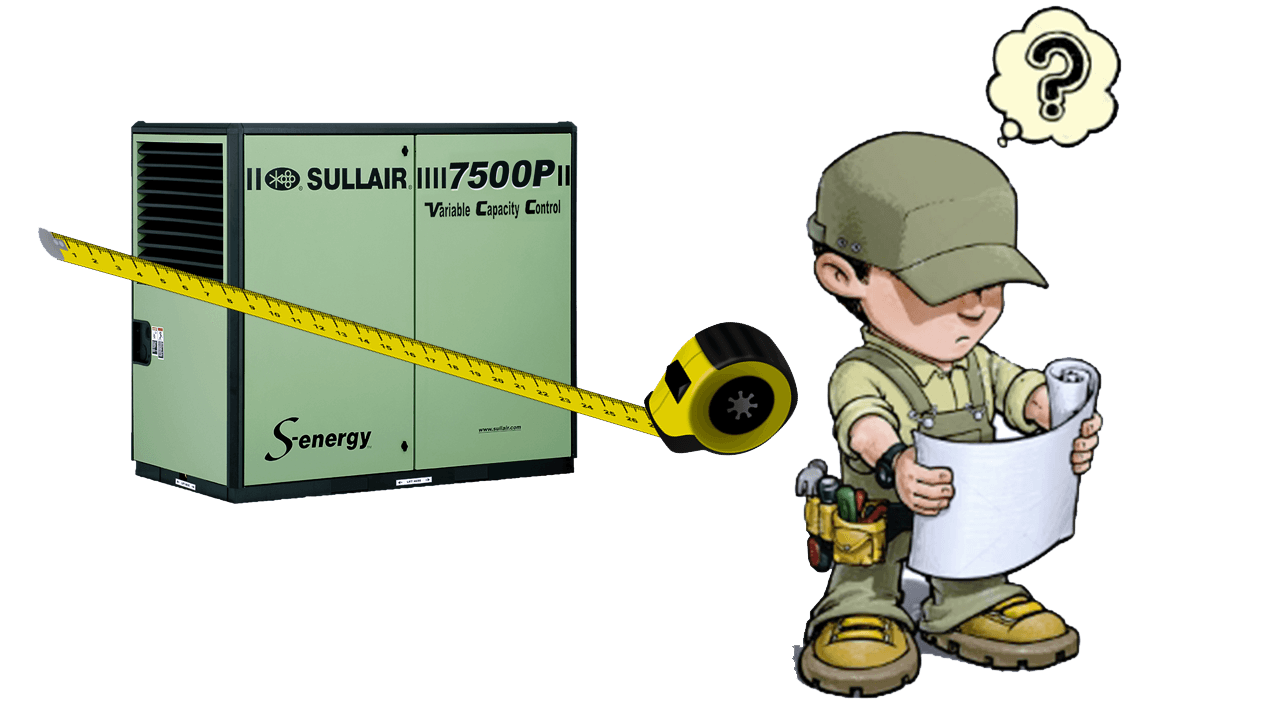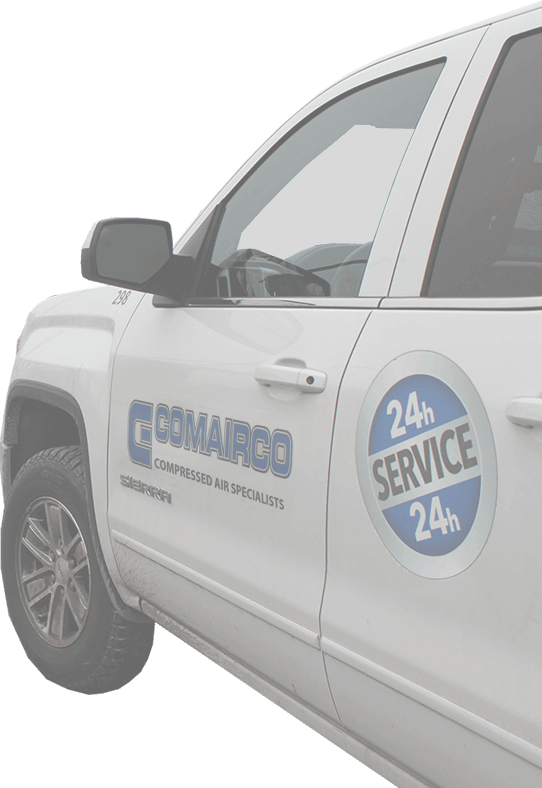
Sizing an Air Compressor 101
Avoid be overwhelmed with too much information!
HOW TO PURCHASE THE RIGHT SIZE OF COMPRESSOR FOR YOUR BUSINESS
The internet is full of information that is only a few clicks away from anyone searching for something. Whether you are seeking personal finance information, how to fix something in your home or purchasing an air compressor for your business you can quickly be overwhelmed with TMI (Too Much Information). This can cause you to quickly get frustrated and be forced to phone a friend for help.
Whether you are starting up a new business or expanding/retrofitting an existing business an air compressor purchase can be daunting. Below are some basic terms and a logical thought process to help purchase the right size air compressor for your business.
1) New Business- Collect the following information from the pneumatic equipment, tools and processes you will be using.
• CFM is the standard term used with air compressors it stands for Cubic Feet per Minute (How much will each use).
• PSIG is how much pressure each item requires to operate properly (Usually between 80- 125).
• Duty Cycle is the frequency the tool, equipment or process will require compressed air (100%, 50%, etc of the time)
Once you have that information you can begin to explore your options for an air compressor based on flow, pressure and how much will be consumed at any one time.
NOTE: A Good Rule of Thumb, an air compressor can make between 4-5 cfm per horsepower. The higher the pressure usually the lower the flow.
2) Existing Business- There are several scenarios here; increasing your air supply, downsizing your air supply, retiring an old compressor in kind etc. In a simple single compressor system there are some basic formulas that a good compressed air specialist could advise you how to calculate your new demand. In multiple compressor systems it’s always a good idea to have a datalogged air audit performed and measure your system for 7 full days. That data will give you a snapshot of your flow, pressure and power usage and will eliminate guess work for you next purchase. If you leave your air system on over the weekend but have no production the air audit will identify your leak load for you. NOTE: Leaks are too expensive to ignore. We will discuss this further in a future article.
Good industrial practices to follow would be to install your air compressor system (air compressor, storage tank, filters and dryer) in an environment where the ambient air temperature is no hotter than 90 degrees F ideally, has an easy flow path for compressor suction and a path to remove the heat generated from the compression process. In some cases that heat can be recovered as a heat source in the winter (More on that in a future article). Stay tuned for another Compressor 101 article next month.
Comairco can make this experience a pleasant one and educate you along the way. Let us help you design a reliable energy efficient system.
www.comairco.com Phone 845-224-3027
Mark Pfeifer U.S. Department of Energy Certified AIRMaster+ Specialist &
CAGI Certified Compressed Air Systems Specialist

